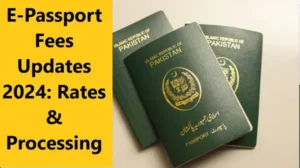Pakistan-Afghanistan Border Reopens after Visa Rule Suspension
Pakistan and Afghanistan Relations
Cross-border trade between Pakistan and Afghanistan resumed on Wednesday after officials from both countries reached an agreement to grant a two-week extension for Afghan drivers to comply with new visa requirements.
This development comes after commercial traffic came to a halt on Tuesday when Pakistan implemented a new rule mandating passports and visas for the crew of commercial vehicles entering the country.
Read More: Strict Security Amid Afghan Repatriation
Afghanistan, in response, retaliated by blocking the passage of all trucks. However, with the diplomatic efforts and the agreed extension, trade has now resumed.
The two-week grace period aims to facilitate Afghan drivers in meeting the updated visa regulations.
This diplomatic resolution marks a positive step towards maintaining smoother cross-border trade relations between the two nations.
“Yesterday, when Pakistan enforced its new rules, the Afghan side responded by suspending trade in protest,” a Pakistani customs official told AFP on Wednesday.
“Last night, officials from the Ministry of Commerce held a meeting with Afghan officials, reaching an agreement to grant another two-week extension for Afghan drivers.”
The official clarified that Pakistan had twice deferred the implementation of the new rule. The media office of the governor of Nangarhar province in Afghanistan confirmed the resumption of cross-border trade after the recent diplomatic resolution.
This development highlights the efforts to find solutions and maintain stable trade relations between the two nations, underscoring the importance of open communication and cooperation.
Read More: China`s Ambassador to Afghanistan Given Warm Welcome by Taliban
Tensions with Kabul: Pakistan-Afghanistan Border Reopens after Visa Rule Suspension
Long-standing tensions between Kabul and Islamabad have deteriorated since October, sparked by Pakistan’s announcement to deport Afghan migrants considered illegally residing in the country.
Approximately 340,000 Afghans have been deported or voluntarily returned amid this diplomatic strain.
Pakistan has altered its entry policies, now insisting that only Afghans with passports and visas can enter the country, ending the previous practice of accepting national identity cards.
This shift has significant implications for landlocked Afghanistan, heavily reliant on Pakistan for imports, both locally produced and foreign items via Karachi port.
The economic crisis in Pakistan has led to a policy change, with the country asserting substantial financial losses annually due to duty-free entry of Afghan-bound goods.
Concerns about smuggling and illegal sales have also contributed to the stricter regulations.
The mass deportation of Afghan migrants is framed by Pakistan as a necessary measure to protect its welfare and security, attributing a surge in attacks to militants operating from Afghanistan.
Read More: Development Projects in Afghanistan
The Taliban administration in Afghanistan vehemently denies accusations of harboring foreign militants, emphasizing that Pakistan’s security concerns are an internal matter.
This ongoing diplomatic standoff has broader implications for regional relations, trade dynamics, and security.
The geopolitical complexities underscore the need for open communication and resolution to ensure stability in the region.
Note: The information above might not be accepted 100%. Please verify from your own sources. We will not be responsible for any kind of loss due to our content.
For more news, please visit Munafa Marketing.




